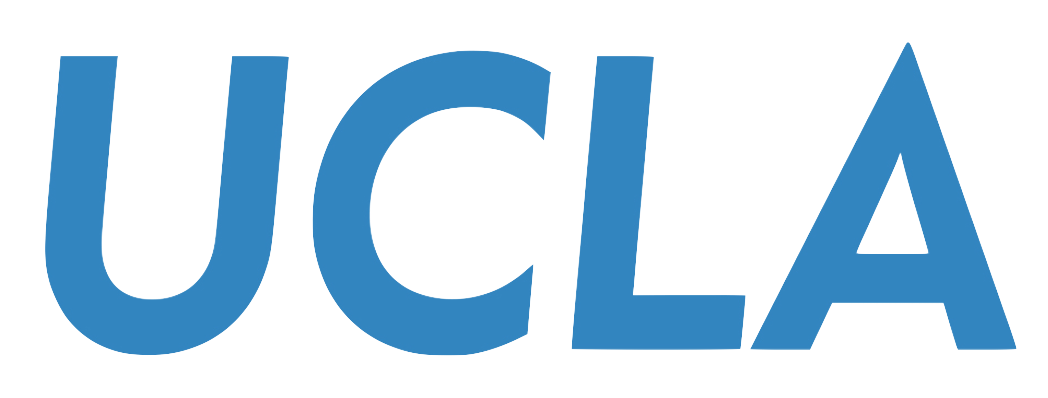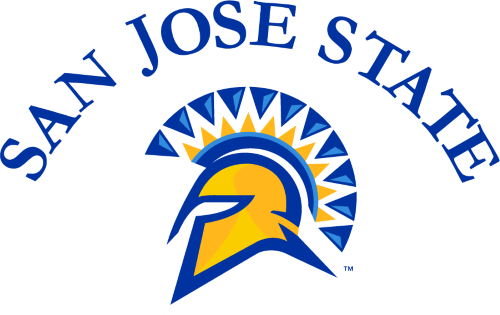California’s state library system seeks to be “a leader, innovator, champion, and important source of trusted information to Californians.” This assertion, found in California State Library’s vision statement, reflects similar sentiments found in mission and vision statements of other state libraries across America. California State Library, and all the other libraries within California it supports, want to provide the best possible services to the state’s citizens, and a key way those services are provided is by hiring knowledgeable, trained, and skilled librarians. And those librarians are certainly needed – California leads the nation in the sheer number of public library facilities alone, coming in with a whopping 1,127 buildings and over 20 million cardholders statewide.
To assist people on journeys to become librarians in California, the state’s colleges and universities offer a wide range of Master of Library and Information Science (MLIS) and other information services-driven degrees and certificates for potential candidates. The California Library Association (CLA) explains that there are many convenient online program offerings for students interested in completing their MLIS degrees from an American Library Association (ALA)-accredited institution.
Masters in Library Science Programs in California
There are MLIS program options for all sorts of students interested in earning a library science degree in the state of California. For example, some programs are offered entirely online, making it easy for working adults to squeeze in their classes around an already-busy schedule. Many are ALA-accredited, which is a preferred qualification at most public, academic, and K-12 school library institutions hiring for new librarians.
For people who aren’t interested in or ready for an MLIS or already have an MLIS under their belts, there are options for bachelor of science programs and Ph.D. programs in library and information studies. As California is such a large state serving the public with the leading number of library institutions in the nation, the demand for a variety of MLIS and other library science certification programs is high.
ALA Accredited MLIS Programs in California
An ALA-accredited MLIS program means that the college or university’s library science degree program meets a specific set of standards set forth by the American Library Association, which serves as a supporting and governing body for America’s various libraries. According to the ALA accreditation webpage, “Graduating from an ALA-accredited program provides flexibility in the types of libraries and jobs you can apply for and enhances career mobility.” This is why finding a good ALA-accredited program is a smart option: many library employers prefer (or even require) an ALA-accredited degree on your credentials to be considered for a position.
Ready to find the right ALA-accredited MLIS program for you? Consider these options, as endorsed by the California State Library (to see specifics about these programs’ offerings and other features, continue reading).
California State University at Long Beach
San José State University
University of California at Berkeley
University of California at Los Angeles
University of Southern California Bovard College
No GRE Required MLIS Programs in California
Some people don’t perform well on standardized tests; many colleges and universities are moving away from using standardized test scores in their admissions requirements. Rather than focusing on a student’s performance on a singular test, these admissions committees are taking a more holistic approach toward whether or not they want to admit a future student based on overall grades and GPAs, letters of recommendation, personal statements, personal achievements, and extracurriculars. Many California colleges and Universities are taking this approach by eliminating Graduate Record Examination (GRE) test scores from their application requirements.
University of California at Los Angeles

Location: Los Angeles, California
Online and In-Person Program Options: 100% in-person
Program: Master of Library and Information Science
Program Length: Average of two years
Tuition: Tuition and fees for this MLIS program are about $18,136 per year for California residents, and about $33,238 annually for non-California residents.
Program Overview: This in-person, ALA-accredited MLIS program prepares students by mentoring them for leadership in whatever field of information work they choose to enter. The program has near 100% work placement within six months of graduation; this is possible because the program offers face-to-face instruction, a wide selection of specializations, internships, individual advisors, mentor programs, teamwork experiences, and opportunities for students to complete independent research.
University of Southern California Bovard College

Location: Los Angeles, California
Online and In-Person Program Options: 100% online
Program: Master of Management in Library and Information Science
Program Length: Full time students can finish this program in one year; part time students can finish this program in two years.
Tuition: $58,482 for the entire program
Program Overview: This unique take on the MLIS degree offers all the library and information science education with an added bonus of a focus on business administration skills. Students in this program leave with their MMLIS, which emphasizes the focus on management and administration, and how those skills work in the library setting. To further add to the perks of this program, no GRE scores are required for admission.
Online Masters in Library Science Programs in California
Many master’s programs recognize that the majority of their students are adults with many responsibilities, such as careers and families. To accommodate the need for flexible and convenient ways to further a busy adult’s education, many MLIS programs in California offer a 100% online course format for their MLIS programs.
There are a variety of completely-online MLIS programs to choose from in California, as many colleges and universities have long since adopted online formats for courses. If achieving your MLIS online would work best for you, consider these options:
California State University at Long Beach

Location: Long Beach, California
Online and In-Person Program Options: 100% online
Program: Teacher Librarian Services Credential
Program Length: 9 classes (or 27 credits/units of study)
Tuition: In-state tuition is currently $2,049 for 6 units of credit for California residents. Out-of-state costs are the same, but add an additional $420/unit, making the total for non-residents $4,569.
Program Overview: Students may earn the credential-only, or may pursue the credential along with an MS in Educational Technology & Media Leadership, also offered by the college. The format is completely online with the option to complete field research and experiences in-person.
San José State University

Location: San José, California
Online and In-Person Program Options: 100% online
Programs: Master of Library and Information Science, Master of Archives and Records Administration, Master of Science in Informatics, CA Teacher Librarian Services Credential
Program Length: 43 credits
Tuition: In-state tuition is currently $9,146/6-credit semester. Out-of-state students currently pay that rate plus an additional $396/credit, totaling to $11,522.
Program Overview: San José State University’s offerings are broad – while the core MLIS degree is 43 credit hours, students can choose electives to narrow their focus to suit their professional interests. For example, a student in the MLIS program can choose the archival path if they eventually want to secure a career in archives and records.
Ph.D. in Library and Information Science Programs in California
Students who already hold an MLIS are sometimes interested in continuing their education with a Ph.D. in library and information science. Whether it is to gain a deeper understanding of the field, complete research, prepare for higher-level positions, or become eligible to teach at the collegiate level, a Ph.D. in library and information science can give a professional the educational edge they need to advance toward their goals.
If you are considering earning a Ph.D. in library and information science in California, consider these program options:
University of California at Los Angeles

Location: Los Angeles, California
Program: Ph.D. of Information Studies
Program Length: 3-5 years
Tuition: In-state tuition costs $18,136 annually. Out-of-state tuition costs $33,238 annually.
Program Overview: This Ph.D. program is described as rigorous with a strong research focus. It is structured in a way to give students a cohort experience with coursework coupled with research apprenticeships and faculty mentoring. Students are also encouraged to present and publish their research findings in academic, professional, and community venues.
University of California at Berkeley

Location: Berkeley, California
Program: Ph.D. of Information Science
Program Length: An average of six years
Tuition: In-state tuition is $10,964 for one semester. Out-of-state tuition is $18,515 per semester. UC Berkeley offers funding opportunities for all Ph.D. candidates, such as fellowships, stipends, and research positions.
Program Overview: This doctoral program is highly research-oriented. Students are able to choose their specific fields of specialization and complete original research and preparation in that field, eventually culminating in a written dissertation.
Bachelors in Library and Information Science Programs in California
For students who are ready to learn the foundational knowledge they need to be successful in a library setting, they may choose to earn a Bachelors of Library and Information Science degree. While many people earn their MLIS after earning a bachelor’s degree in a different field, it isn’t uncommon for students to begin their educational journeys with a BS in library science.
San José State University

Location: San José, California
Program: BS in Information Science and Data Analytics
Program Length: Four years
Tuition: In-state tuition costs $8,410/6 units of study. Out-of-state tuition costs an additional $420 per unit, totaling $10,930.
Program Overview: The Bachelor of Science in Information Science and Data Analytics degree program at the San José State University School of Information prepares undergraduate students to work with data, technology and people. While this degree program is an excellent stepping stone that can lead to an eventual MLIS, there are plenty of career opportunities this undergraduate degree can bring.
How To Become a Librarian in California
As a whole, California does not require any special certification to become a public librarian. Many of the basic requirements to qualify for a public librarian position in California follow two basic routes, depending on the library system or facility’s hiring preferences:
- Have a completed MLIS degree (may or may not require the degree to come from an ALA-accredited institution; this is often a preferred quality, but isn’t necessarily set in stone).
- Have a completed bachelor’s degree with relevant experience for library work.
Potential K-12 school librarians do not need a completed MLIS in order to qualify for these positions. According to the California Commission on Teacher Credentialing, a candidate would need to…
- Have a bachelor’s degree or higher in any subject area.
- Hold a valid teaching license in the state of California.
- Complete a commission-approved Teacher Librarian Services Credential program, securing the formal recommendation of the California college or university where the program was completed.
- Note: Many schools offering MLIS programs also offer this TLSC program. Many students opt to complete both concurrently, resulting in a completed MLIS and completed TLSC at the end of the program. While the MLIS isn’t a requirement for California’s K-12 school librarians, it is worth noting that earning an MLIS in addition to the TLSC can open more career pathways.
- A professional preparation program in teacher librarian services including successful completion of a supervised field work, or the equivalent, in a program taken outside California of at least 30 graduate semester units, that is comparable to a program accredited by the Committee on Accreditation.
The requirements for prospective academic librarians in California follow a similar protocol to many other states. Similarly across the country, California colleges and universities’ libraries often prefer for their potential academic librarians to…
- Hold a completed MLIS degree (may prefer that it was earned at an ALA-accredited institution, but again, this requirement isn’t always firm).
- And in some instances, hold another degree in a subject area relevant to the student body the library serves (example: a librarian serving in a library for a school of the arts may have an MLIS plus a relevant art degree).
Additional Career Opportunities in California for MLIS Program Graduates
In California, an MLIS degree can open more professional pathways than just the ones leading to K-12 school, public, or academic libraries. MLIS degree programs can come in a few different “flavors,” preparing the students for rich careers in librarianship-adjacent fields.
For example, San José State University’s base MLIS program can be tailored to suit a few different career fields. People studying here can focus their MLIS on data analytics, informatics, digital assets, or archives and records administration. While these aren’t necessarily what first comes to mind when a person pictures working in librarianship, these niche career pathways stem from the foundational principles of library and information science.
Another unique career pathway for MLIS graduates in California includes working in libraries inside prisons. The California Department of Corrections and Rehabilitation explains that there are libraries inside each California prison, and all inmates have access to library resources and services. Prison libraries may sound a bit intense, but they serve a great purpose in the lives of inmates seeking information, connections, and research assistance when performing information searches for their own cases. As a bonus, all legal resources are digital and up-to-date according to current California laws and best practices, ensuring these librarians and inmates have access to the most current and helpful information available.

